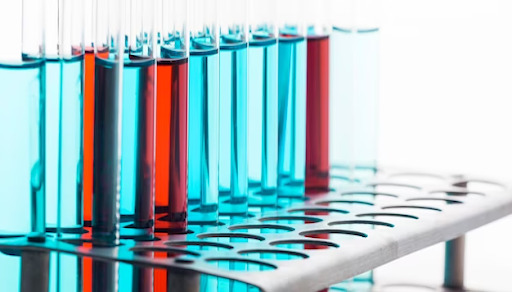Having access to science laboratory supplies is essential for efficient and successful experiments in education. With Techmate, we can help support schools, universities and other educational establishments, by providing market-leading lab tools and science laboratory equipment. But what are the different types of laboratory apparatus that can enrich a student’s learning of the sciences?
This article will explore the types of laboratory equipment typically seen in an academic setting and their individual uses, why students need access to science lab supplies for practical use and the benefits of having an efficient supply of lab tools.
Different types of laboratory apparatus:
The most common types of science laboratory equipment typically seen in an educational environment are:
- Microscopes – Microscopes allow students to look at tiny objects magnified many times their actual size, enabling a closer observation which can greatly improve understanding.
- Glassware – Such as beakers, test tubes and pipettes are used to hold substances during experiments; these pieces must be made from borosilicate glass due to its heat resistance so it doesn’t shatter when heated up.
- Hotplates or Bunsen burners – These allow chemicals to be heated up during experimentation.
- pH meters or chemical testers – Depending on the type of experiment, a pH meter can measure acidity levels on a scale from 0-14.
- Centrifuges – A centrifuge separates liquids from solids at high speed through spin cycling.
- Balances or scales – These provide accurate measurements when dealing with small substances such as chemicals or powders; they can measure down to hundredths or thousandths of a gram, depending on your model type.
- Thermometres – Thermometres measure temperatures accurately over a wide range using Celsius or Fahrenheit metrics.
Why Do Students Need Access To Lab Supplies For Practical Use?
For students to gain real hands-on experience in their studies, they need access to different types of laboratory apparatus designed explicitly for purposeful experimentation:
- Microscopes can show cells structure that cannot easily be seen with the naked eye
- Flasks, beakers and test tubes allow the manipulation & transfer of hazardous material safely
- Hot plates and Bunsen burners provide a controlled source of heat;
- pH testers help determine whether solutions are acid or alkaline
- Thermometers give readings on temperature changes occurring during chemical reactions etc.
Having easy access to vital science laboratory equipment allows greater visual understanding & encourages curious minds to explore concepts thoroughly by harnessing practical experience alongside theory knowledge – this combination provides invaluable foundations upon which skillsets can develop further into more complex problem-solving scenarios.
Benefits Of Having An Efficient Supply Of Lab Tools?
Science is taught, unlike any other subject. Just take a look at any science classroom, and you’ll be able to see the difference. Rather than rows of desks, science classrooms include small clusters of tables with sinks, burners, and other equipment designed to help students learn. So how does a well-stocked lab in educational establishments help students?
Student Engagement – It is better for students to be able to perform experiments instead of reading about them if your school or university is well-stocked with the right science laboratory equipment. Students who learn by doing are more likely to understand challenging theories and concepts, they can become more engaged and develop a deeper appreciation for science.
Improves Information Retention – Students are more likely to retain information when they are actively engaged in their curriculum. When students complete a single experiment and witness the results first-hand, they can retain the information much longer than if they read over challenging subject matter several times.
Provides Students with Practice. Having access to well-stocked labs provides students with the opportunity to practice performing experiences. Until students have completed a few experiments in school, they may not be able to adjust from reading about the sciences to putting them into action if they intend to enter a science-based profession.
Ideally, science education should be conducted in laboratory classrooms where students can hold experiments and learn from their own experiences, rather than from books. Therefore is paramount for schools and university science courses to be well stocked with science lab supplies and equipment.
At Techmate, we have all the lab supplies for schools, universities and other educational establishments in one place. We can help nurture students’ appreciation of science by providing market-leading lab tools and equipment, such as pH testers, lab glassware, and a range of microscopes. Contact Techmate today by visiting your online shop or calling our experts to discuss your requirements.






